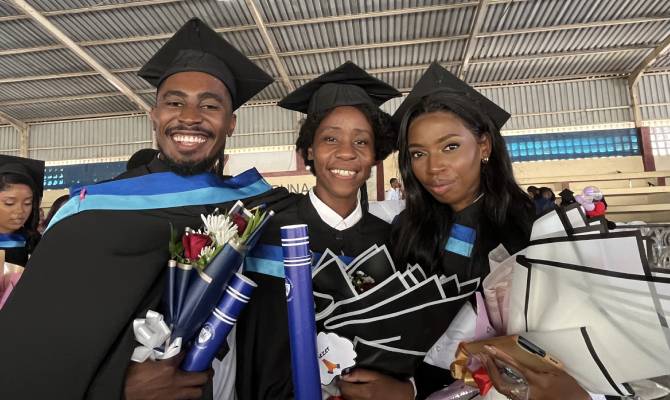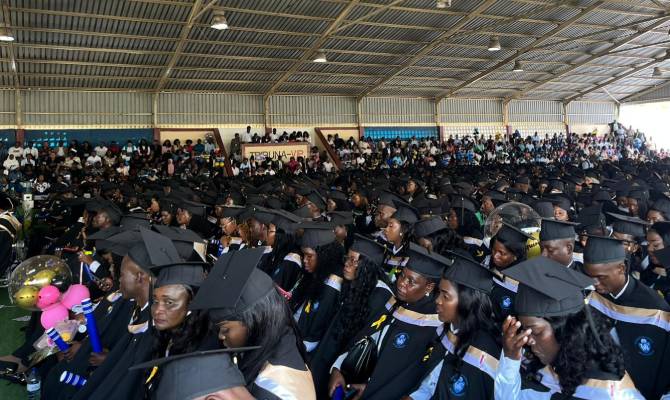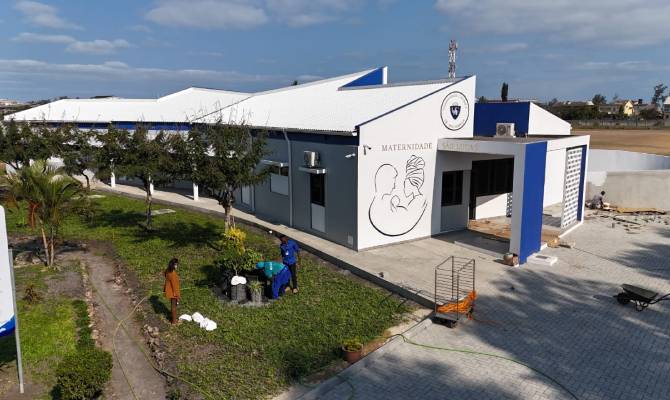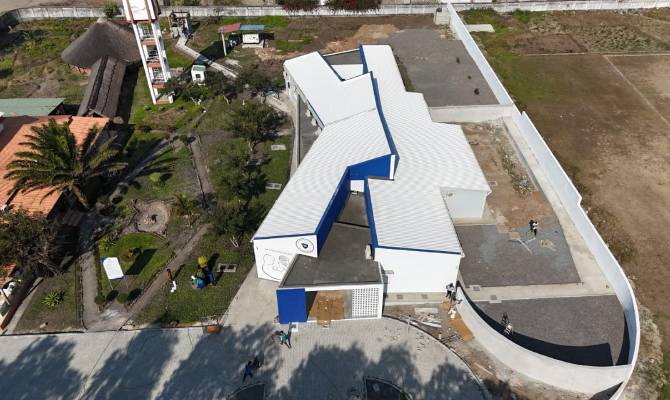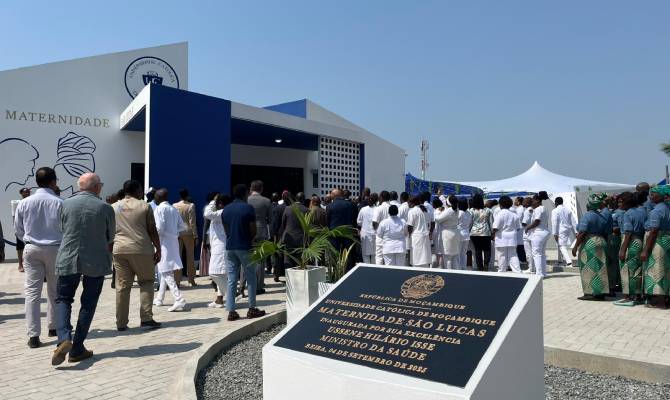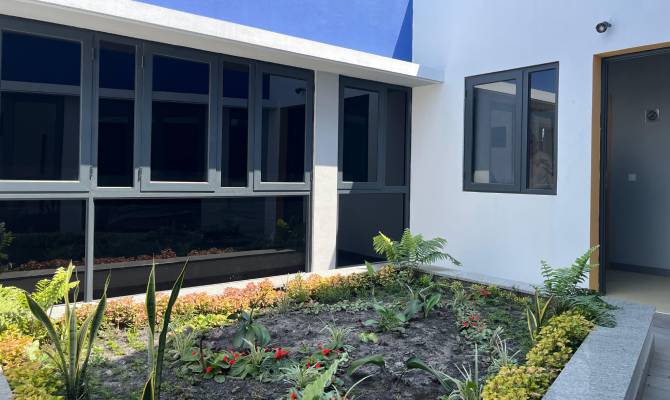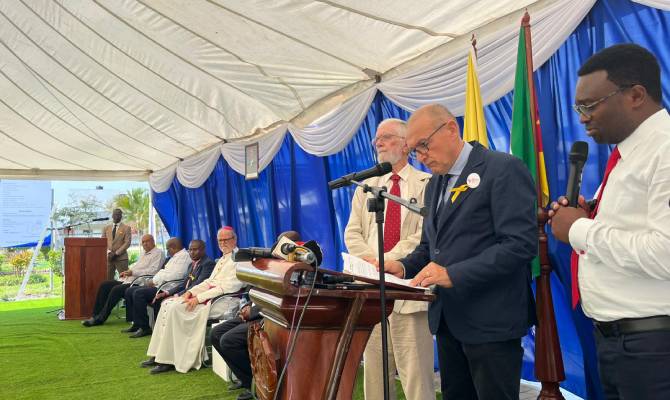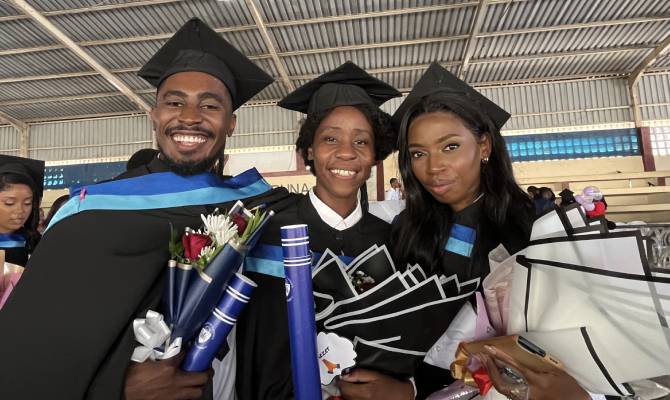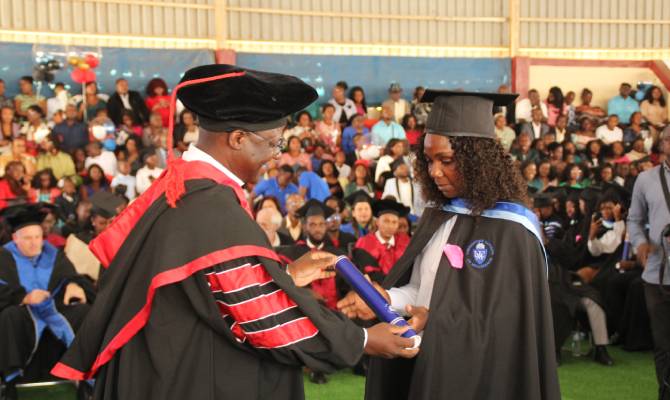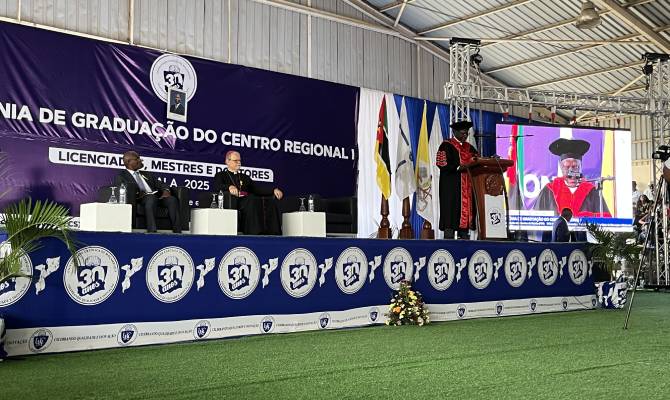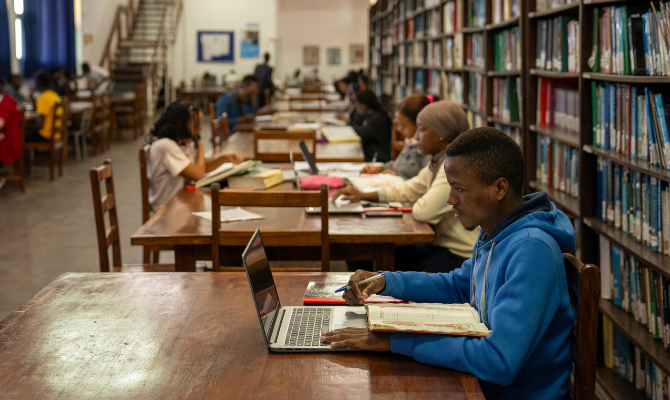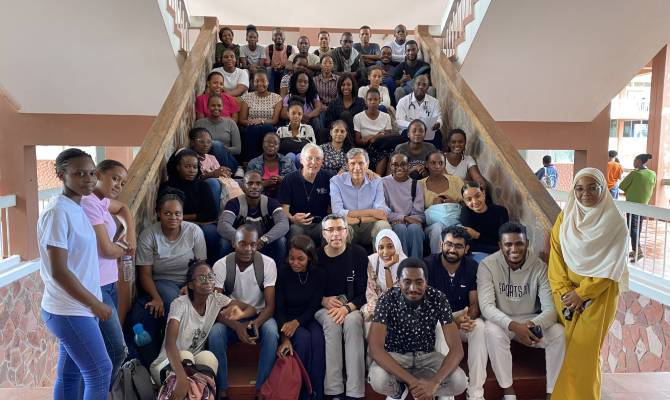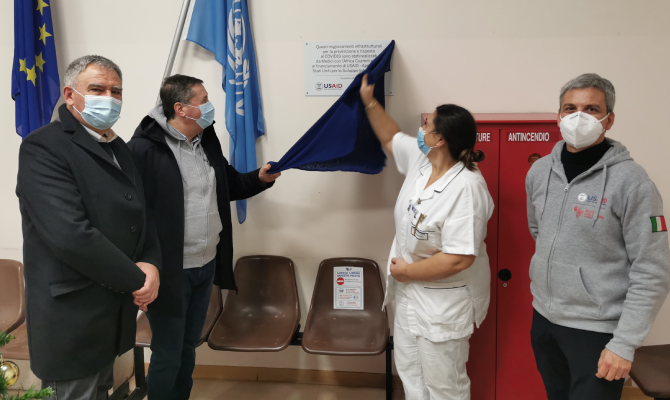As every year, September is a long-awaited moment in Beira. The month of new beginnings is, for medical graduates of the Catholic University of Mozambique – UCM, the conclusion of a journey made of study and determination.
This year, UCM awarded medical diplomas to as many as 57 young men and women who nurtured the dream of caring for the weakest, the vulnerable, and the sick. And, as every year since 2007, Doctors with Africa CUAMM has helped some of them achieve that dream. Seven CUAMM scholarship students—six women and one man—pursued their studies with perseverance and determination, reaching this important milestone today.
“With this ceremony, we celebrate a story of resilience, dedication, and hope. This is not the conclusion of a cycle of studies, but the beginning of a new chapter of service to the Mozambican community,” said the Dean, Father Filipe Sungo.
The city comes to a halt on this festive morning. Traffic is congested in the Palmeiras neighborhood, while students in academic gowns are accompanied by family and friends. Elegant outfits, flowers, and colorful decorations abound, as in any proper graduation ceremony. The students are euphoric: between posed photos, chants, and dances, we too are swept up in the contagious joy. The same joy that every year reminds us how important it is to build together a future of opportunities for young people and of healthcare for the country.
Doctors with Africa CUAMM began supporting the Catholic University of Mozambique from its foundation in 1995, contributing to the establishment of the Faculty of Medicine—the second in the country. Since 2007, the year the first class of aspiring doctors graduated, CUAMM has continued to support the teaching activities of UCM’s Faculty of Medicine. Over the years, this collaboration has grown stronger and richer. Today, we work together on the faculty’s syllabus, internship opportunities at Beira Central Hospital, and research projects.
As further proof of this strong and long-lasting partnership, another important milestone has been achieved: the opening of the Maternity Ward of UCM’s Faculty of Health Sciences. The facility was inaugurated on Thursday, September 4, in an official ceremony attended by the Minister of Health, Dr. Ussene Hilario Isse, the Bishop of Beira, Don Claudio Dalla Zuanna, the Rector, Father Filipe Sungo, and a delegation from the MartaLive Foundation. The ward has a dual purpose: to address and manage maternal care needs in the area, and to contribute to the training of UCM’s students.
“The inauguration of the new maternity ward at the Catholic University of Mozambique is not just the delivery of a healthcare facility, but the concrete result of collaborative work, a shared commitment that brings together institutions, universities, donors, and civil society. In other words, it is the fruit of synergy, which has always been at the core of our work,” said Giovanni Putoto, CUAMM’s Head of Planning and Operational Research.
The 560 m² facility, dedicated to maternal and child health services, is expected to handle around 1,400 deliveries per year and 100 prenatal visits per month, effectively expanding the prenatal services previously provided only by the San Luca Center.
“This Maternity Ward was built in memory of Marta, thanks to the collaboration between the MartaLive Foundation and CUAMM – Doctors with Africa. I am very pleased and moved to be here with you today, and I am honored by the presence of so many authorities. I sincerely thank them for joining this significant and meaningful event for us,” said a visibly moved Costantino Nurizzo, President of the MartaLive Foundation.
The maternity unit at the San Luca Center will not only be a place of care but also a space for learning, professional growth, and research. It will not only provide medical treatment and skill development but will also serve as a concrete tool to improve the quality of health services available to the community.
“Today is a historic day for Mozambique. The maternity ward we are inaugurating perfectly represents the vision of the Ministry of Health and our commitment to decentralize maternal and child health services at the peripheral level, ensuring what we call ‘proximity healthcare,’” said Dr. Ussene Hilario Isse, Mozambique’s Minister of Health.

